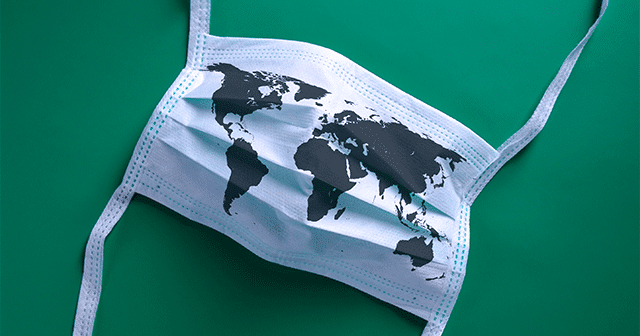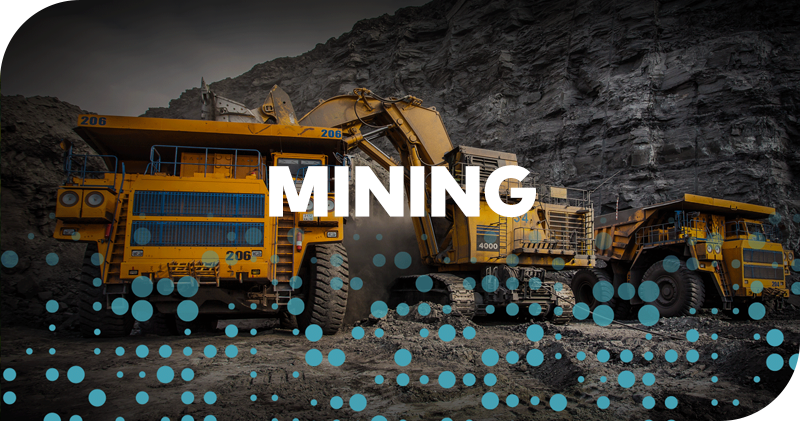Commodity trading during a global crisis

In the middle of a global crisis, most people go into survival mode. The first thing on their minds isn’t whether or not it’s a good time for commodity trading. The majority need to focus on weathering the crisis and holding on to their jobs, homes, and future.
But for those in the commodity trading business, they need to push on to stay viable. And they should. There are reasons why a global crisis can be a good time to consider the benefits of investing in the market.
The team at DTN understands how quickly the commodity trading market can shift. Even in normal circumstances, traders must move fast to stay profitable. And in a global crisis such as COVID-19, accurate data is even more critical. Contact DTN today to learn how our suite of trading products can keep you operating successfully.
What Is Commodity Trading?
Commodities are any physical goods that people buy and sell on the commodities markets across the world. Some of the most commonly traded goods include:
|
|
Commodity trading involves trading shares in these goods on markets such as the Chicago Board of Trade and The New York Mercantile Trade.

What Creates a Global Crisis?
The USA is the world’s leading economy, with China not far behind. Unfortunately, if a financial crisis affects one or both of these countries, it affects the rest of the world.
Think about what happens when one business fails. It has a domino effect that extends far beyond that company:
- Employees lose their jobs and all the benefits that come with the work. Income, health care, pension plans, and life insurance may suddenly disappear.
- With a drop in income, the newly unemployed workers risk defaulting on their mortgages and facing repossession.
- Having a reduced income means people stop buying non-essential goods, causing a drop in revenue for other businesses.
- Other businesses now have difficulty staying afloat. As they start to fail, they lay off staff, continuing the cycle.
- Banks start calling in mortgages or make them harder to get. This situation leads to a drop in house prices or even a pause in the real estate market.
When you extrapolate this scenario out to an entire sector, the impact is more significant. Suddenly a town, an industry, or even a state has widespread economic damage. And if a crisis affects a major economy like the US or China, the whole world shares the pain.
The world has seen three significant economic crises in the past 100 years. Each had different roots, but each also had a massive impact on world economies.

- Wall Street Crash of 1929
By 1929, stock prices in the US were at an all-time high, based on little substance apart from consumer optimism. Traders bought and sold stocks for inflated prices. There was little regulation to prevent wild speculation. When the façade collapsed, it triggered a global depression with loss of jobs, industry failures, and massive bankruptcies. - Oil Crisis of 1973 and 1974
Oil is the most widely-traded commodity, and the bulk of the world’s oil supply comes from the Middle East. During the 1970s, these countries used oil as a political weapon. They significantly increased their prices and triggered an inflation crisis. Prices of goods sold had to include the rising costs of manufacturing and transportation. - Global Financial Crisis of 2008
Subprime mortgages occur when banks lend money to borrowers who typically shouldn’t qualify due to their higher risk of default. In 2008, however, the risks overtook the benefits for lenders. And when a world-leading investment bank filed for bankruptcy, the system collapsed. The speculators who previously depended on accessing cheap, easy credit defaulted on mortgages, and the housing market collapsed.
These three crises had a couple of things in common. First, they were preventable, precipitated by human choices rather than something like a natural disaster. And all three led to changes. The US government introduced laws to regulate the stock market and lending institutions. And the world suddenly started looking at alternative energy measures.
So, in theory, the world is at less risk of global financial crises now than it was 100 years ago. Unfortunately, we now know that another crisis with a different root can hit at any time. The current worldwide COVID-19 pandemic has created another crisis.

Commodity Trading During a Global Financial Crisis
There is no simple way to weather a worldwide economic downturn. When a global crisis hits, almost every sector feels the impact in some way.
But, trading and investing do not shut down completely. Goods still have to move from producer to consumer. Stores still need food to sell. Gas stations still need fuel in their pumps.
During a crisis, the commodity trading challenge has two parts:
- Working with slow or interrupted supply chains – The current coronavirus emergency is impacting manufacturing and transportation. Many goods are stuck in warehouses rather than moving to market.
- Working with a reduced demand – Energy trading, in particular, is feeling the slow-down as driving has mostly come to a halt.
Commodity traders know full well how fluid and variable their business is under the best circumstances. But during a crisis, the market becomes even more volatile.
With changing data seeming to come every hour or more, traders can feel like they’re in the middle of a tornado. The real-time tick data can even leave experts with their heads spinning.
To navigate this storm with profits intact, commodity traders need reliable, up-to-the-minute data. They must have actionable insights that help lay a roadmap for successful trading.
Different markets will have different demands. So traders who stay focused but also flexible can come out on the other side of this in one piece. The key is using the best technology possible to streamline your operations and keep the money flowing.
DTN Has the Perfect Solution
Fortunately, the technology to stay on top of your trading business is at your fingertips. The DTN group of financial products is here to help you in times like these.
Options such as ProphetX Commodities Edition give you fast, accurate information so you can stay profitable. Contact a team member at DTN today for a free demo.











 Comprehensive weather insights help safeguard your operations and drive confident decisions to make everyday mining operations as safe and efficient as possible.
Comprehensive weather insights help safeguard your operations and drive confident decisions to make everyday mining operations as safe and efficient as possible. Learn how to optimize operations with credible weather and environmental intelligence. From aviation safety to environmental compliance, our comprehensive suite of solutions delivers real-time insights, advanced forecasting, and precise monitoring capabilities.
Learn how to optimize operations with credible weather and environmental intelligence. From aviation safety to environmental compliance, our comprehensive suite of solutions delivers real-time insights, advanced forecasting, and precise monitoring capabilities. 

